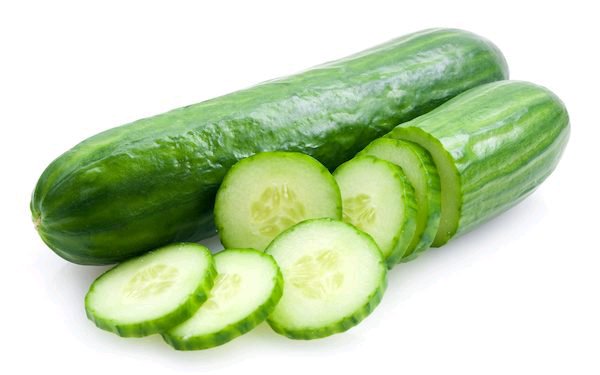Health benefits of cucumber
According to history, cucumbers were very popular in the ancient civilizations of Egypt, Greece; their uses were not limited to just being food. It was venerated for the effect it had on the skin.
The fruit (cucumber) that is commonly thought to be a vegetable, is low in calories and contain a good amount of water and soluble fiber, making it an agent that does not only promote hydration but also help in weight loss.
In addition to the above benefits, cucumber also contains unique polyphenols and other compounds that may help reduce the risk of chronic diseases and much, much more.
Health benefits of cucumber
Cucumbers contain an anti-inflammatory flavonol called fisetin. And the importance of this fisetin cannot be overemphasized when it comes to playing a major role in brain health.
Because it improves your memory and protects your nerve cells from age-related decline.
When bacteria finds comfort in the mouth, bad breath becomes a guest.
However, with the rich presence of water in cucumber, the production of mouth saliva increases upon consumption; which in turn helps wash away the bacteria that cause the odor in the mouth.
Cucumbers contain polyphenols called lignans (pinoresinol, lariciresinol, and secoisolariciresinol), which may help to lower the risk of breast, uterine, ovarian, and prostate cancers.
They also contain phytonutrients called cucurbitacins, which has been proven to have anticancer properties.

Over the years, cucumbers have been useful for diabetic patients. Cucumbers possess a hormone required by the beta cells during insulin production.
The Glycemic Index of cucumbers is actually zero. The presence of carbohydrates and their result on the body is measured by the quantity Glycemic Index.
Every food item contains essential nutrients in different percentages. The carbohydrates contribute in raising the glucose level, however, the carbohydrates present in the cucumber can be easily digested by diabetic patients.
Thus, the consumption of cucumbers keeps the glucose level in check.
Cucumber is known to have excellent cleansing properties. Those properties actively eradicate accumulated toxins from the body system.
And since these properties also help in the removal of uric acid, it has, therefore, been effective for the treatment of arthritis.
Furthermore, cucumber is very good for optimizing urinary bladder, kidney, liver and pancreatic functions. It is also considered a natural diuretic because it aids in urine secretion.
Cucumber is a good source of vitamin K: One cup contains 22 percent of the recommended daily intake of vitamin K. This vitamin is essential for bone health, as low vitamin K intakes have been associated with a higher risk of bone fracture.
Vitamin K is also important for improving calcium absorption in the bones.
Cucumbers contain potassium, which is associated with lower blood pressure levels. A proper balance of potassium both inside and outside your cells is crucial for your body to function properly.
As an electrolyte, potassium is a positively charged ion that must maintain a certain concentration (about 30 times higher inside than outside your cells) in order to carry out its functions, which includes interacting with sodium to help control nerve impulse transmission, muscle contraction, and heart function.







